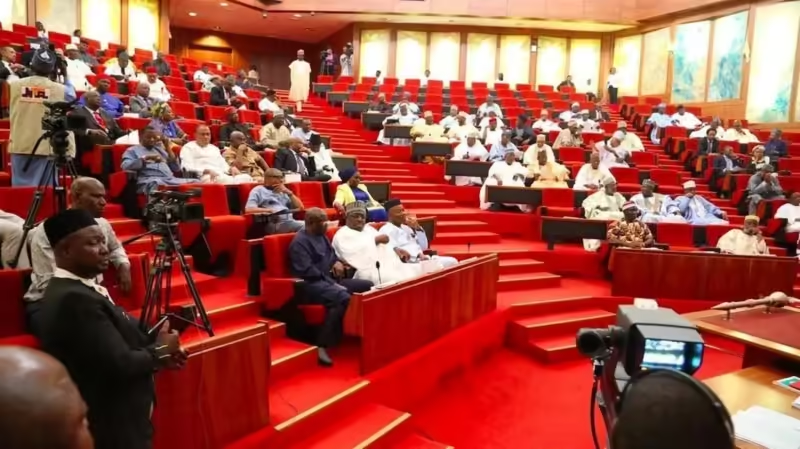In addition to opposing mandatory voting, the advocacy group called for amendments to electoral laws that would improve the voting process. The organization proposed the inclusion of provisions for internet-based voter registration and the use of modern technology in casting and counting votes. SERAP believes that securing citizens’ right to vote through legal protections would help restore public confidence in the electoral system.
Abuja, Nigeria – The Socio-Economic Rights and Accountability Project (SERAP) has called on Senate President Godswill Akpabio and Speaker of the House of Representatives Tajudeen Abbas to withdraw a proposed bill that seeks to penalize Nigerians who fail to vote in elections.
The controversial legislation, currently before the National Assembly, mandates compulsory voting and prescribes a six-month jail term or a fine of ₦100,000 for non-compliance.
In a letter dated March 29, 2025, and signed by SERAP’s Deputy Director, Kolawole Oluwadare, the organization described the bill as oppressive and inconsistent with democratic principles. SERAP argued that voting is a fundamental right, and forcing citizens to participate in elections under threat of punishment contradicts both the Nigerian Constitution and international human rights standards.
Call for Electoral Reforms Instead of Punishment
Rather than penalizing voter apathy, SERAP urged the National Assembly to focus on meaningful electoral reforms. The group recommended amending the 1999 Constitution and the Electoral Act 2022 to eliminate immunity for governors and their deputies who engage in electoral malpractice, including vote-buying. Additionally, SERAP advocated for legislation that would prohibit political party members from being appointed as Resident Electoral Commissioners (RECs) for the Independent National Electoral Commission (INEC).
The organization emphasized that tackling issues such as voter intimidation, electoral violence, and the influence of money in politics would be a more effective approach to increasing voter turnout. According to SERAP, compelling Nigerians to vote does not address the underlying causes of voter apathy, which include a lack of trust in the electoral process.
Threat of Legal Action
SERAP warned that if the National Assembly proceeds with the bill and it is eventually signed into law by President Bola Tinubu, the organization would explore legal avenues to challenge its constitutionality. The group insisted that citizens have the right to decide whether or not to participate in elections and that coercion undermines the essence of democracy.
“The right to vote also includes the right not to vote,” SERAP stated. “Forcing citizens to vote contradicts the very principles of democracy, where participation is based on free will and informed choice.”
In addition to opposing mandatory voting, the advocacy group called for amendments to electoral laws that would improve the voting process. The organization proposed the inclusion of provisions for internet-based voter registration and the use of modern technology in casting and counting votes. SERAP believes that securing citizens’ right to vote through legal protections would help restore public confidence in the electoral system.
The group also urged lawmakers to introduce bills targeting politicians who undermine elections through voter suppression, intimidation, and the destruction of electoral materials. According to SERAP, removing immunity for governors and their deputies who commit electoral offences would be a significant step toward curbing electoral fraud.
The advocacy group emphasized that the key challenge facing Nigeria’s democracy is the erosion of public trust in the electoral process. The organization warned that if citizens do not believe in the integrity of elections, the legitimacy of democratic governance itself would be called into question.
The group concluded that instead of punitive measures, the government should focus on ensuring free, fair, and credible elections that genuinely reflect the will of the people. They reiterated that democratic participation should be encouraged through institutional reforms rather than coercion.










Join our Channel...